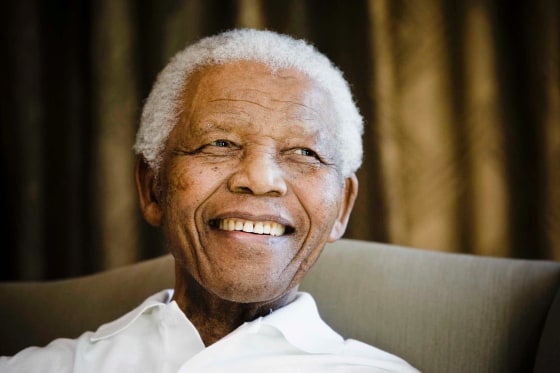by David Gregory
The question I’ve heard most since Mandela’s death is what his example could teach Washington. Throughout the arc of his life, from revolutionary, to prisoner, to founding father of modern South Africa, he refused to be consumed by hatred and insisted on working toward a common purpose with his political foes, black and white alike.
That is what is missing from this era of argument in Washington.
President Obama eulogized Mandela late Thursday afternoon saying that Mandela, “embodied the promise that human beings – and countries – can change for the better.” The election of our 44th president was similarly an example of how countries can overcome their past. Yet President Obama has struggled since he made history. He still aspires to achieve political consensus on some of the country’s most pressing challenges.
It was a powerful moment in the White House briefing room as Mr. Obama described how Mandela inspired his own political awakening. His first political activity was to protest apartheid in South Africa. “The day he (Mandela) was released from prison gave me a sense of what human beings can do when they’re guided by their hopes and not by their fears.”
That emotion foreshadowed his own rise to political power as America’s first African American president. Obama didn’t experience this country’s civil rights era first hand, so the emotional tie to Mandela must have been deep.
I was in college when Mandela was freed from prison. It was a time of great change around the world. In preparation for a life as a foreign correspondent , I was studying French and German, history and international affairs. Then the Berlin Wall came down.
The world was changing fast. Freedom was advancing in ways unimagined during the Cold War. I quickly learned that coverage of the world would recede by American broadcast news networks. But the Mandela story transcended. I was working as a cub reporter in Arizona during my summers away from American University. In 1990 I traveled to Oakland to see Mandela, who was visiting the U.S. on a victory tour.
He thanked the tens of thousands gathered in the hot sun at the Oakland coliseum for their support of his efforts to topple South Africa’s white, racist regime. Mandela was known as a great and towering figure, even to those who didn’t follow the political battles of far-off South Africa. And the pure joy felt throughout the crowd as he spoke is what I will always remember.
At a time of such deep distrust in government, I welcome this moment to pay tribute to Nelson Mandela as a figure who can inspire human beings to be better people. He exuded patience, principle, pragmatism as a politician, and grace as a person. Even after so much had been taken from him, he kept his heart open and changed the world.
I hope you will join us for a special Meet the Press this Sunday. We will examine Mandela’s life and legacy and his relationship to Washington.
